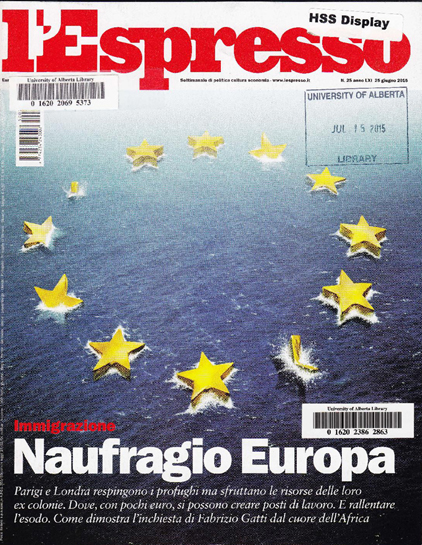My belief is we will, in fact, be greeted as liberators.
Vice President Dick Cheney, March 16, 2003.
The damage has been done; so welcome.
Welcome. Let us offer our welcome to the new and forgotten. Whatever appears, what we can touch, the presence we feel belonging as we belong. What faces us, the horizon, assumes a form that reflects me. I would not recognize myself were it not for this possibility: in passing in time, I cannot help but being elsewhere as here opens. Not only am I you – we exist only in passing – not one moment of existence is frozen in time. In moving we chance fulfilling the vastness by the body in front of us. If it offers words, be they unknown to me, we share a language of recognition – words that want to bind us, presently.
If the body washes ashore broken, a thing, language fails. I know. I know that what fails is not language because had the body spoken there would have been a voice. I stand in front of my failure, which is not the other but a passing, together. It’s a thing; it does not speak. It washes ashore, void of assurance but swollen with hope. I encompass its brief existence within my gaze, memories without a past.
How do I welcome a thing, a corpse? This thing thrashed about by currents of water upon the sand, held by hope. I must speak for it, because when I speak for it I am thrashed upon the darkness of no language. I must move among the Homines Sacri, to find them in their darkness, in silence. And I must start again to find words.
Hospitality
In the ancient Mediterranean Sea, a shared word threaded together the overcoming of boundaries. It drew to itself a language that enveloped the voyage. The word spoke to traveler and host, it bound them to make distance safe, by responsibility. Though the word is tied to commerce, it transcends the possible transaction. It does so by creating the horizon for a relationship, of welcoming the unknown, the stranger, in a precise space. The word is Xenia. What appears through the word is respect, safety. Hospitality that subdues and relegates violence to the nature of water and gods, violence flowing through unexpected patterns, harboring the tempest, so baring life to the shipwreck. It is not by chance that further in time, Lucretius wrote:
Pleasant it is, when over a great sea the winds trouble the waters, to gaze from shore upon another’s tribulation: not because any man’s troubles are a delectable joy, but because to perceive from what ills you are free yourself is pleasant.(On the Nature of Things, book 2, line 1)
Here, hospitality unravels in the fury of elements, and folly – if that were the case – of tempting fate. The passive condition of the watcher is the release of empathy, its subjugation by being on terra firma in front of a fearful spectacle of rising death. Xenia contains this, and opens to it, vanquishing the ancestral fear of chaos by welcoming, encompassing in the traveler one’s possible future, the experience of the past, memory. A sense of this can be drawn, for example, from Martin Buber and Edmund Husserl. The way they posit the relationship: ‘I’- you’, encompassing the other by presence. The ‘you’ that can never be ‘it’, the ‘thing’ that opens Simone Weil’s The Iliad, or the Poem of Force:
The true hero, the true subject, the center of the Iliad is force. Force employed by man, force that enslaves man, force before which man’s flesh shrinks away…. To define force – it is that x that turns anybody who is subjected to it into a thing. Exercised to the limit, it turns man into a thing in the most literal sense: it makes a corpse out of him.
In fact, Xenia is the baring of the gift: you are safe, here, to live now. It is not the expectation of immediate reciprocity, the sociality that invests such a process lays bare future possibilities: I have traveled with you, and I would welcome the approaching safety though I know not my host nor an elsewhere. Perhaps. Perhaps such a reading of the past, where myth fades into history, is always the limit of the present looking back, Benjamin’s Angel of History struggling forward somewhere, in time.
Is it for this reason then that The Odyssey must address Xenia repeatedly in the epic of the way back, through extended time? The first four books, concerning Telemachus and Odysseus, where Xenia is given the stage, bring about a recuperation of a shared knowledge erased from the living by the war at Troy. In the Iliad, a stratagem not only brings about the destruction of a city and its conquest, but – unknown to its doers – the whole of the Mediterranean civilization. The wooden horse left in front of the city’s doors, the apparent gift, erupts at the seams. One does not betray the fundaments of a shared culture as easily as such. For the voyage home becomes the reconstruction through the remnants of that cataclysm. As Odysseus becomes the Everyman who must use force, now the force of storytelling, strands are woven into a tapestry – a wineskin that is still marked by its tears, where water seeps through – necessitating time, twenty years, a full generation. A time span unthinkable today: we percolate through the compressed, eternal present that denies history, continuously forestalling each future via spectacles enhanced by environments of technological communication. Paraphernalia of surface reflections: mirrors of mortality. Question: was James Joyce’s Ulysses, its 24 hours span, the ironic criticism of contemporary conditions?
The liquid cemetery
Modernity, paradoxically, is the removal of (passing) time from experience through unspoken acceleration. Everything stands on the present: continuous, endless. A personalized ubiquity diffuses us through the swelling globe, by the proliferation of screens and cameras that gratify, augment, narcissism. Zygmunt Bauman recently used ‘liquid modernity’ (2002) to denote the consistency of late modernity. Everything is in a state of flow, directionless, on the surface; gone are the roots that bound us to a solid reality, to a particular type of knowledge. Marshall Berman’s All That is Solid Melts into Air, twenty years prior, indicated the passage that took all to the very same state of affairs. Perhaps, William Shakespeare’s reflection in Henry IV, Part 1 was meant to convey this lived world we must leave: “But thought’s the slave of life, and life time’s fool; / And time, that takes survey of all the world, / Must have a stop.” (Hotspur, Scene IV, Act 5). By stopping time as history, as future, has death not been vanquished?
I have in front of me a copy of an Italian magazine, L’Espresso (25th of June, 2015). The cover has 12 golden stars in a circle, floating in a tranquil sea of blue. Five of the stars are in various stages of sinking. Underneath, in red, the title: Immigrazione. Immediately beneath it, in white, a larger font: Europe’s shipwreck, (Naufragio Europa). In italics, smaller font, the following: “Paris and London reject the refugees but exploit their ex-colonies’ resources. Where, with a few Euros, jobs can be created. And slow down the exodus…”
I know what the picture is alluding to. The stars symbolize the European Union reverberating with the flow of tragedies that have marked the Mediterranean Sea in the last years. Each star, in its sinking stage, stands for the boats that have shipwrecked, the thousands that have vanished in their attempt to reach Italy, Europe. I have chosen this magazine, this issue, because it points graphically to a responsibility halting at the surface of things. An image. Yes, it has already been overtaken by the course of further events. Speed binds us still. But has it? The Mediterranean Sea remains a liquid cemetery, and the recent past(s) cannot be crossed out. If anything, it can only point to Thanatos – not a home, nor a welcome.
A picture, one dead word
A picture moves the world. A lever? No, a child washed ashore. A thing, picked up by a guard. Why this particular picture? All the vanishing of peoples in time finally reached their destination in this visual catalyst. Exhausted. As Roland Barthes indicated, a picture is the best form to represent death. And we buried in the steadfast flow a word as we moved into this eternal present: Xenia. In dispersing it, we have lost humanity so as to acquire its dissipating spectacle. Business is business. What is real, today, are news flashes evoking the emotive, competing with instant vision, overflowing, momentarily, at the seam of a million eyes? Still, can I welcome you in this haze?
Universo
Col mare
mi sono fatto
una bara
di freschezza
(G. Ungaretti, Devetachi il 24 agosto 1916)

Dr. William Anselmi is a Professor in the Department of Modern Languages and Cultural Studies at the University of Alberta.




